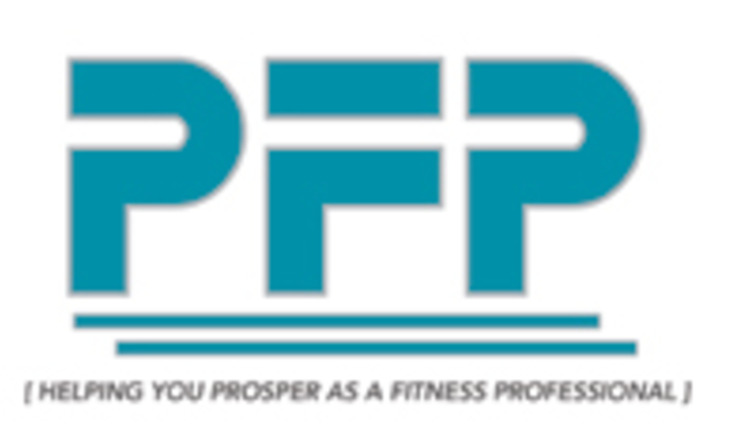Certified. Experienced. Competent. Outgoing. Professional. Reliable. Those are words typically used in classified "Help Wanted" ads seeking personal fitness trainers. I've run the ads, and I have determined that most people who respond to help wanted ads for personal training positions cannot read. Well, maybe that's hasty, sort of like the scientist who commanded the frog without legs to "jump," concluding "frogs without legs are deaf."
More than once I have wished for a trap door and a pit of hungry alligators below to cut short a painful interview with a non-candidate whose ego entered the room way before he or she did. But that doesn't necessarily mean the egomaniac applying for the position didn't read the ad. It does, however, suggest that the applicant field is filled with unqualified individuals who believe the casual leap from unrelated avocations to "personal trainer" is as simple as showing up for an interview.
Does anybody who is capable of actually gaining the trust and attention of a multitude of clients respond to the ads? Sure, some qualified trainers actually show up, but as most who've been in the position of interviewer will attest to, they're typically few and far between.
The Hooter's waitress who takes aerobic classes thought she was qualified when she saw the ad. The stable worker who is muscular and loves working with horses thought the transition to working with human beings would be simple. The construction worker who works out five days a week, benches 365 and was tired of working in the
If my assumption is inaccurate, if they can in fact read the words and they are reviewing the ads in their entirety...then maybe the personal training industry has not yet matured to a level where the general populous sees it as a true career path. Maybe the waitress, the stable hand and the construction worker honestly believed they were as professional, experienced and competent as anyone. Maybe the term "fitness professional" still needs to be defined. Maybe, although we, the working trainers who have amassed education, validation and experience, understand the virtues of a credible certification, the trainers-at-large believe any interaction with exercise waives the need for what one candidate boldly called, "a dumb old certificate."
Here's the scary part. I'm in the market again. I want to build my team, and along with my friend Juan Carlos Santana, want to leave the present perception of "Personal Training Excellence" in the dust by raising the bar so high only the elite will be able to jump over it with those who follow recognizing the virtues of additional training, commitment and development. Mediocrity should not be accepted in a professional field where individuals have measurable impact on the lives, health and well-being of their clients.
In a preliminary effort to narrow the filed of applicants, Juan Carlos and I sent an email to individuals who had expressed interest in working with us, and we subsequently spent two days conducting 10-minute interviews on the phone. By the 15th interview we were punchy. By the 24th, I saw tears in the corners of Carlos' eyes. By Interview #29, we simultaneously screamed so loud I'm surprised the windows didn't shatter.
The screening process was grueling. That's when the brainstorm hit. If we're looking for trainers who have the potential for greatness, trainers who deserve to be working side by side with others of an exceptional caliber, we can't possibly reach out to them one at a time. We decided to reach out, industry-wide, and conduct a massive hunt for excellence in motion, for passion that can be molded into success, for individuals with the desire to master the art of bettering people's lives through fitness.
As we pull together the specifics of The Personal Training Apprentice Hunt, I think there are two issues that need to be addressed if our field overall is going to mature to a level of indisputable professionalism:
1. Trainers need to know what qualities employers are looking for, and they need to hone their presentations and interviewing skills accordingly.
2. Employers need to develop strategies for narrowing the field.
Trainers Leave Your Ego at Home!
There are wonderful positions available for trainers ranging from corporate wellness positions to highly visible members of highly skilled training teams. There are a growing number of "apprentice" positions as successful trainers who built their own clientele and opened their own studios seeking to replicate themselves by hiring. Ask any personal training entrepreneur at that point in his or her career what the greatest challenge is. The answer is unanimous: "Finding good trainers."
Accomplished trainers often mistakenly perceive a segment of the universe as the whole and never see the forest through the trees. They never even have the opportunity to share their true talents with viable employers. Throw a highly skilled fitness professional in the mix of trainers who secure positions with some of the major health club chains. In many high-volume clubs, a few hours of interaction is enough to reveal that some of their trainers have flawed perceptions of their skill sets. Watch a few less-skilled trainers for a given period of time and it's easy to believe the entirety of the health club field compromises quality for quantity. If you fall into the trap of believing that you're exceptional because you're more skilled than those in your field of vision, you run the risk of tripping over your own ego and falling into the pit of frustrated trainers who criticize their own field.
Recognize that any position that facilitates interaction with people seeking positive physical change can serve as a step toward your ultimate growth, and rather than viewing the step as the platform, view it as a necessary foothold on your rise to the top. With this perspective you'll recognize that if you're the best on a weak team, you're standing on a springboard to placing you on par with trainers on an exceptional team. Exceptional teammates drive each other to continue to grow. The challenge is the exceptional team won't find you. You'll have to hunt down the opportunities, and then present yourself as any applicant interviewing for any professional position.
Locating the opportunities for employment is a necessary prerequisite, but additional preparation is advised. Trainers often believe that their superiority shines through in conversation, and the mastery of the approach they use in attempting to secure clients equates to adequate preparation for an interview. When they are passed over for employment, they blame the organization for failing to see their talents. In most cases, the trainers failed to allow their talents to shine through.
When interviewing for a position, stifle that voice that continues to ask, "What's in it for me?" It's an important question, but it isn't appropriate for the initial meeting. The initial meeting requires that the potential employer view you as a competent contributor, not a greed-driven mercenary. I'm amazed by the number of trainers who wear their arrogance on their sleeves by boasting about their achievements and their perception of their own value in a first interview. You can evaluate the "me" question after you're offered a position.
Practice presenting a balance between "here's what I bring" and "here's how I contribute" using a video recorder, then study the video objectively asking, "how is this going to be perceived?" Ideally, you'll hone your presentation to five minutes that clearly shows you in the most flattering light.
Present the marriage between your desire to help people and your awareness of how vital client attraction and retention are to the company. While you "sell" clients based on your ability to convince them that you can deliver results, you "sell" employers by helping them see how your respective goals align.
While trainers like to speak of "helping people," employers are concerned with "the bottom line." "Pay me to help people and I'll do a good job," fails to inspire most employers. "Allow me to use my skills to attract and keep clients so you continue to prosper by thrilling people" is the language employers respond to. In short, practice being at your best, recognize the interview as a humbling audition and keep your ego in check.
Employer Strategies
If you've moved to a level where it's time to start building your own team, you might benefit from two strategies that allowed me to conserve time. In recent years, I've found greater success using online job portals than newspaper ads. The online posting allows a preliminary screening step and an online response. I've learned to consolidate my follow-up recruiting time by inviting those applicants who appear qualified to "fill out an application" between "10 AM and Noon" on a given day. This allows me the luxury of "non-interview" eyeballing. I free myself up for those two hours without any scheduled one-on-one interviews, and when someone appears to fit the mold I'm looking for, I'll enter a short conversation which may lead to "come on into the office so we can chat." I typically wind up with a handful of qualified candidates who I can invite back for interviews. Rarely will I hire before conducting four interviews, because I want to get to know someone and fairly evaluate the match.
Another strategy that has worked involved setting up in-house forums where the audience, by virtue of the fact that they're attending, is made up of qualified trainers. I've conducted a "Build Your Personal Training Business" seminar. If 12 people show up, you have 12 people who saw value in investing something in building their career. I tactfully announce that I have positions open, and invite anyone interested to fill out an application, but I'm also careful to deliver extreme value, even for those who aren't interested in applying. I've also managed to attract qualified audiences by bringing in speakers that would appeal to the type of personality and level of skill I'm seeking.
Finding qualified trainers is challenging, but when you find the right match for the right opportunity, you can have a massive impact on your growth potential. Just don't feel obliged to devote days, weeks or months to getting caught in the revolving door of "candidates" who have interest without substance. Now Juan Carlos and I are about to begin a nationwide search for exceptional potential. We hope before applying, our candidates we'll read this article, and we'll keep you posted on the outcome!
Phil Kaplan is a respected personal training leader. His success strategies are shared in his acclaimed book, Personal Training Profits and a Secure Fitness Future. Find more information on the Personal Training Apprentice Hunt at www.philkaplan.com or call 800.552.1998.










